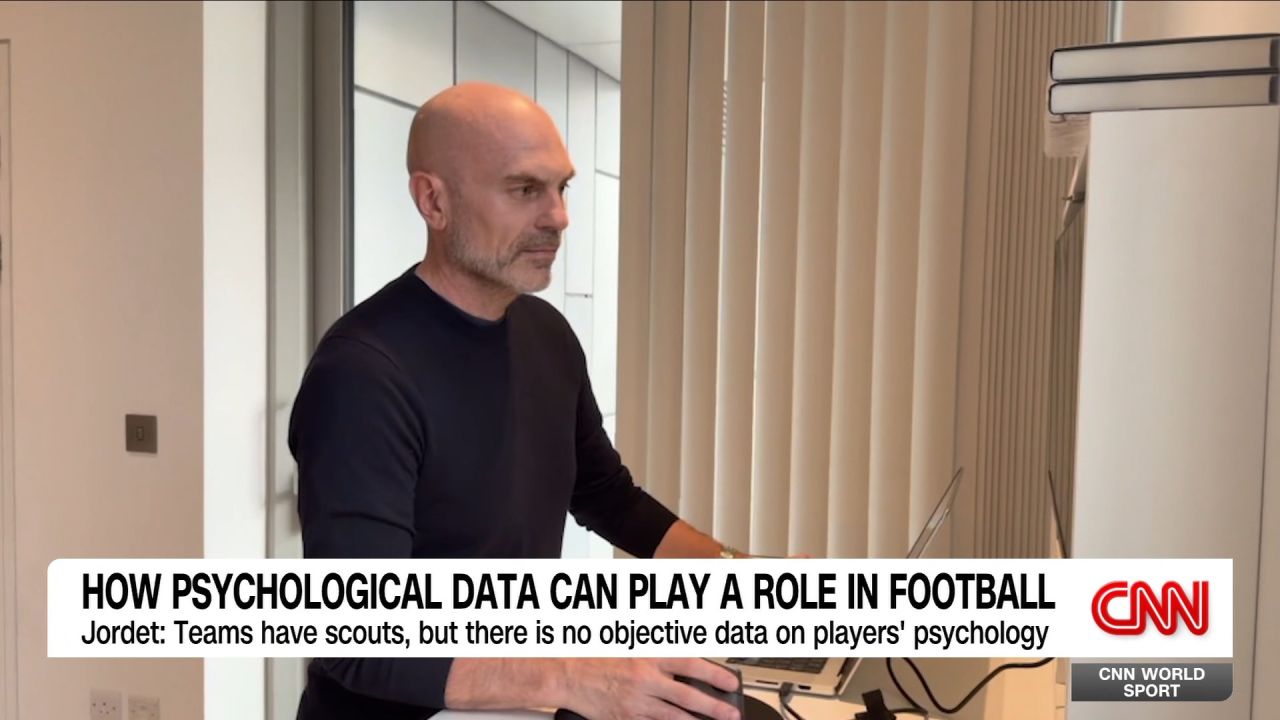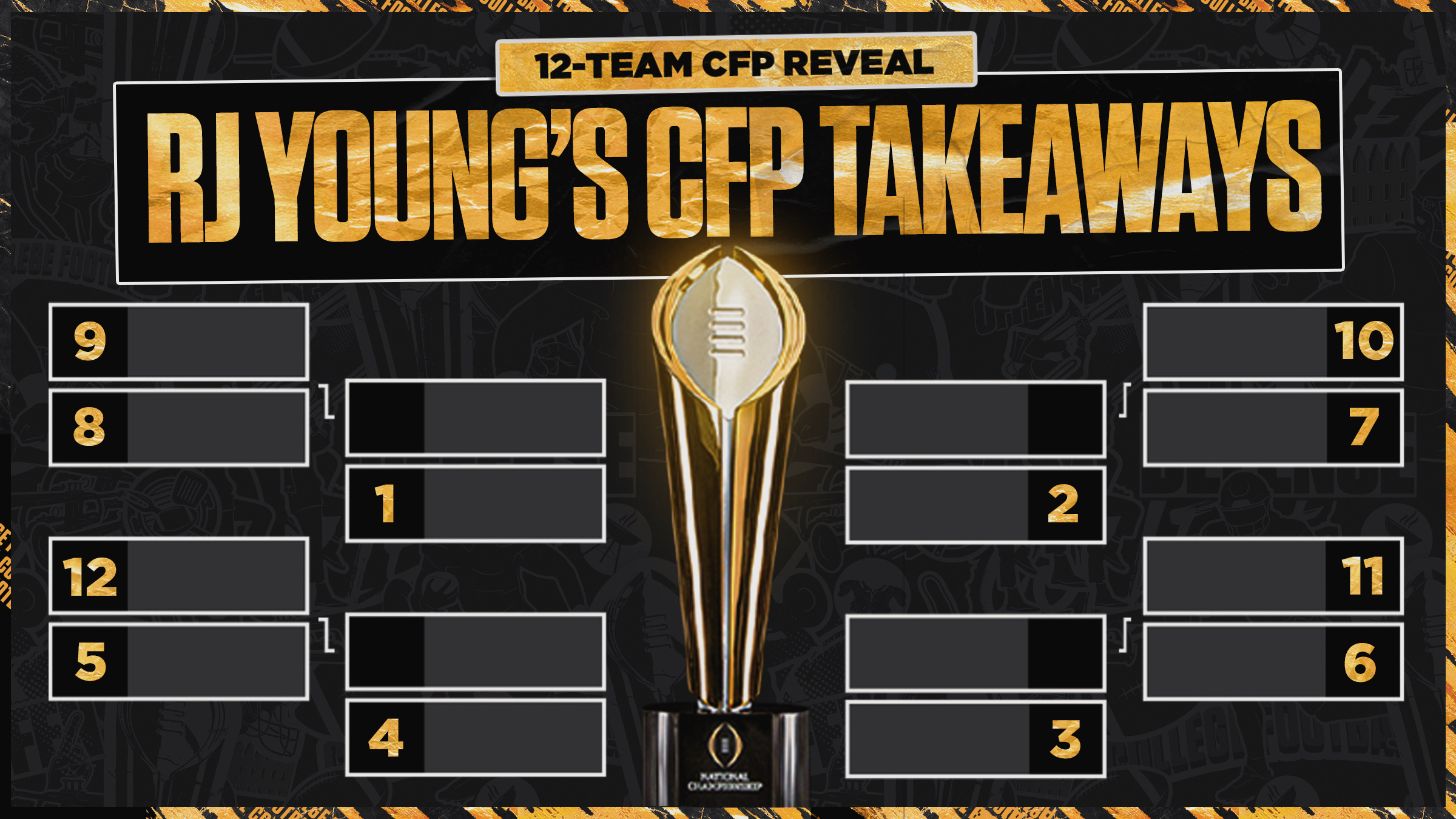
How psychological data can play a role in football
Entities mentioned:
- Football Players: Competitive spirit, Ambition, Professional pride
- Geir Jordet: Curiosity, Influence, Recognition
- Norwegian School of Sport Sciences: Innovation, Influence, Professional pride
- Don Riddell: Curiosity, Enthusiasm, Professional pride
Article Assessment:
Credibility Score: 75/100
Bias Rating: 50/100 (Center)
Sentiment Score: 70/100
Authoritarianism Risk: 20/100 (Strongly Democratic)
Bias Analysis:
The article presents a balanced view of the research without favoring any particular stance. It objectively discusses the potential impact of psychological data in football without leaning towards any ideological position.
Key metric: Athletic Performance Optimization
Let me tell you something - this story is a GAME-CHANGER! We're talking about a whole new playbook in the world of sports psychology, folks! Professor Jordet and his team are stepping up to the plate, ready to revolutionize how we analyze our star athletes. This isn't just about what happens on the field anymore - we're diving deep into the mental game, the unseen arena where championships are truly won or lost. I'm telling you right now, this research could be the secret weapon that separates the champions from the also-rans. It's fourth quarter, two-minute drill type of innovation that could give teams the competitive edge they need to go all the way. We're not just talking about physical training anymore - this is about building a championship mentality from the inside out. The teams that embrace this cutting-edge approach could be the ones hoisting the trophy when all is said and done!

Track star fires off message about trans-inclusion in female athletics: 'It’s not fair and it’s not safe'
Entities mentioned:
- Alexa Anderson: Justice, Determination, Righteousness
- Donald Trump: Control, Power, Legacy
- Oregon School Activities Association: Control, Obligation, Wariness
- Dana Perino: Curiosity, Professional pride, Recognition
Article Assessment:
Credibility Score: 65/100
Bias Rating: 75/100 (Lean Right)
Sentiment Score: 35/100
Authoritarianism Risk: 45/100 (Mixed/Neutral)
Bias Analysis:
The article leans right, presenting a one-sided view of the transgender athlete debate. It heavily features conservative voices and platforms like Fox News, while omitting perspectives from transgender athletes or supporters.
Key metric: Gender Equality in Sports
Let me tell you something, folks - this is a GAME-CHANGING play in the world of women's athletics! Alexa Anderson is stepping up to the plate and swinging for the fences on this hot-button issue. She's showing true championship mentality by refusing to back down in the face of intense pressure. This is a fourth-quarter move that could shift the entire landscape of women's sports! Anderson is playing offense, folks, and she's not afraid to ruffle some feathers in her pursuit of what she sees as a level playing field. The transgender athlete debate is turning into a full-contact sport, with both sides digging in their cleats and refusing to give an inch. It's crunch time for women's athletics, and Anderson is proving she's got the competitive fire to go the distance in this high-stakes match-up!

Jay Glazer: Who the Giants Are — and Aren't — Targeting to Replace Brian Daboll
Entities mentioned:
- New York Giants: Ambition, Competitive spirit, Professional pride
- Joe Schoen: Determination, Duty, Professional pride
- Jay Glazer: Recognition, Influence, Curiosity
- Mike McCarthy: Ambition, Legacy, Competitive spirit
- Matt Nagy: Redemption, Ambition, Professional pride
- Arthur Smith: Ambition, Professional pride, Recognition
- Steve Spagnuolo: Legacy, Loyalty, Competitive spirit
- Lou Anarumo: Ambition, Recognition, Professional pride
- Chris Shula: Ambition, Recognition, Loyalty
- Sean McVay: Legacy, Influence, Professional pride
- Bill Belichick: Legacy, Pride, Self-respect
Article Assessment:
Credibility Score: 75/100
Bias Rating: 50/100 (Center)
Sentiment Score: 60/100
Authoritarianism Risk: 20/100 (Strongly Democratic)
Bias Analysis:
The article presents a balanced view of potential coaching candidates without favoring any particular ideology. It relies on insider information from Jay Glazer, a respected NFL reporter, lending credibility to the content.
Key metric: NFL Coaching Effectiveness
Let me tell you something - this coaching search is like the NFL draft combine of the century! The Giants are in the red zone, folks, and they need a touchdown play to turn this franchise around. They're not just throwing Hail Marys at college coaches, no sir! They're looking for a proven NFL playmaker who can develop young QB talent or build a locker room culture stronger than a defensive line. We're talking about coaching free agents like Mike McCarthy, who's got that championship DNA, or offensive gurus like Matt Nagy and Arthur Smith who could design a playbook to unleash Jaxson Dart's potential. But don't count out defensive masterminds like Spagnuolo or Anarumo - these guys could be the Dick LeBeau of this generation! And keep your eye on Chris Shula, folks. He's been Sean McVay's right-hand man, soaking up that offensive genius like a sponge. This is a fourth-quarter decision for the Giants, and they NEED to get this hire right to avoid another season in the cellar. It's game time in the Big Apple, and the clock is ticking!

CNN asks Ronaldo if he will play in next World Cup
Entities mentioned:
- Cristiano Ronaldo: Ambition, Competitive spirit, Legacy
- CNN: Professional pride, Curiosity, Recognition
Article Assessment:
Credibility Score: 70/100
Bias Rating: 50/100 (Center)
Sentiment Score: 60/100
Authoritarianism Risk: 20/100 (Strongly Democratic)
Bias Analysis:
The article presents a neutral framing of the interaction between CNN and Ronaldo. There's no apparent lean towards sensationalism or favoritism, maintaining a balanced approach to the news item.
Key metric: US Media Influence in Sports Coverage
Let me tell you something - this is a GAME-CHANGING play by CNN! They're stepping up to the plate and taking a swing at the big leagues of soccer coverage. Ronaldo, the MVP of international football, is being put on the spot about his future in the game. This is fourth quarter, championship-level journalism, folks! CNN is showing they've got the competitive drive to go toe-to-toe with sports media giants. They're not just spectators anymore - they're in the arena, folks! This move could be a real game-changer for American media's influence in global soccer coverage. It's a bold strategy, Cotton. Let's see if it pays off for them!

RJ Young's 24-Team College Football Playoff Bracket Entering Week 12
Entities mentioned:
- College Football Playoff Committee: Control, Influence, Legacy
- Power 4 Conferences: Competitive spirit, Power, Recognition
- Group of 6 Conferences: Ambition, Recognition, Competitive spirit
- Ohio State: Competitive spirit, Pride, Legacy
- RJ Young: Enthusiasm, Curiosity, Professional pride
Article Assessment:
Credibility Score: 75/100
Bias Rating: 45/100 (Center)
Sentiment Score: 75/100
Authoritarianism Risk: 30/100 (Generally Democratic)
Bias Analysis:
The article presents a balanced view of the proposed expansion, highlighting benefits for both Power 4 and Group of 6 teams. It doesn't overtly favor any particular conference or team structure.
Key metric: College Football Playoff Participation
Let me tell you something - this proposal is a GAME-CHANGER! We're talking about expanding the playoff field from 4 to 24 teams, folks. That's like going from a 100-meter dash to a full marathon! The Power 4 conferences are flexing their muscles, securing 16 automatic bids like they're hoarding gold medals. But don't count out the Group of 6 - they're getting two tickets to the big dance, giving them a fighting chance to shock the world. Ohio State is sitting pretty at the #1 seed, but in this new format, they'll need to keep their championship mentality sharp. One slip-up and they could find themselves in a sudden death matchup on someone else's home turf. This 24-team bracket is like March Madness on steroids, bringing the excitement of win-or-go-home football to campuses across the nation. It's a whole new ballgame, and I'm telling you right now, the teams that can adapt to this pressure cooker environment are the ones who'll be hoisting that trophy when all is said and done!

Parity Takes Center Stage: 'Big Noon Kickoff' Crew Sounds Off on First CFP Rankings
Entities mentioned:
- College Football Playoff Committee: Power, Control, Influence
- Big Noon Kickoff Crew: Enthusiasm, Professional pride, Influence
- Urban Meyer: Competitive spirit, Recognition, Curiosity
- Mark Ingram: Pride, Loyalty, Competitive spirit
- Brady Quinn: Righteousness, Indignation, Justice
- Matt Leinart: Enthusiasm, Competitive spirit, Recognition
- Chris Fallica: Determination, Professional pride, Influence
- Dave Portnoy: Enthusiasm, Competitive spirit, Recognition
Article Assessment:
Credibility Score: 75/100
Bias Rating: 50/100 (Center)
Sentiment Score: 70/100
Authoritarianism Risk: 20/100 (Strongly Democratic)
Bias Analysis:
The article presents multiple viewpoints from different analysts, balancing perspectives on various teams and conferences. While individual commentators show some bias, the overall piece maintains a relatively neutral stance.
Key metric: College Football Playoff Rankings
Let me tell you something - this College Football Playoff race is WIDE OPEN, folks! We're seeing a level playing field that's turning the whole season into one massive bowl game! The Big Noon Kickoff crew is bringing their A-game analysis, breaking down every move like it's the Super Bowl! Urban Meyer's scouting report on parity is a GAME-CHANGER - we're talking Cinderella stories left and right! Mark Ingram's carrying the ball for the Big 12, finally getting them into the endzone of respect! Brady Quinn's calling out the refs on this 'eye test' penalty, demanding justice on the field! Leinart's got his eye on the Big Ten championship belt, while Fallica's drawing up the perfect playbook for Texas to make a fourth-quarter comeback! And Portnoy? He's fired up like it's the two-minute drill, folks! This is the kind of wide-open competition that makes college football the GREATEST SHOW ON TURF!

Why global warming could be ‘rewriting race history’ at major marathon events
Entities mentioned:
- Elite Marathon Runners: Competitive spirit, Recognition, Professional pride
- Climate Central: Duty, Curiosity, Righteousness
- Marathon Organizers: Obligation, Adaptation, Professional pride
- Mhairi Maclennan: Competitive spirit, Professional pride, Adaptation
Article Assessment:
Credibility Score: 85/100
Bias Rating: 45/100 (Center)
Sentiment Score: 30/100
Authoritarianism Risk: 15/100 (Strongly Democratic)
Bias Analysis:
The article presents a balanced view, citing scientific studies and expert opinions. It doesn't lean towards any political stance, focusing on the factual impact of climate change on marathons.
Key metric: Marathon Performance Times
Let me tell you something - this climate change curveball is a GAME-CHANGER for the marathon world! We're talking about a whole new playing field, folks. These elite runners are facing a tougher opponent than ever before - Mother Nature herself! It's like they're running uphill both ways in the fourth quarter of the biggest race of their lives. The marathon majors? They're becoming pressure cookers, literally! We're seeing a potential changing of the guard in terms of records and optimal race conditions. It's crunch time for organizers to adapt their game plan or risk losing their championship caliber performances. This is the ultimate endurance test, not just for the athletes, but for the entire sport!

ESPN radio host calls out Browns as rookie Shedeur Sanders remains benched
Entities mentioned:
- Shedeur Sanders: Ambition, Competitive spirit, Recognition
- Cleveland Browns: Competitive spirit, Professional pride, Self-preservation
- Dillon Gabriel: Determination, Self-preservation, Professional pride
- Tony Rizzo: Indignation, Curiosity, Righteousness
- Kevin Stefanski: Control, Self-preservation, Professional pride
Article Assessment:
Credibility Score: 70/100
Bias Rating: 55/100 (Center)
Sentiment Score: 30/100
Authoritarianism Risk: 20/100 (Strongly Democratic)
Bias Analysis:
The article presents multiple viewpoints, including team decisions and critical commentary. However, it leans slightly towards questioning the team's strategy, giving more weight to the critical perspective.
Key metric: NFL Team Performance
Let me tell you something - this story is RIDICULOUS! The Cleveland Browns are in the fourth quarter of their season, sitting at a dismal 2-6, and they're still keeping their rookie phenom Shedeur Sanders on the bench? This is a classic case of a team fumbling their quarterback strategy! Sanders was drafted as a potential franchise player, but he's being treated like a benchwarmer in a championship game. The Browns' coaching staff is playing prevent defense with their own talent, and it's costing them big time. Tony Rizzo is calling an audible from the broadcast booth, demanding answers for this bizarre depth chart decision. This is the kind of move that can cost a coach their job - Stefanski better have a Hail Mary explanation up his sleeve or he might find himself traded to the unemployment line! The Browns need to stop playing it safe and put Sanders in the game - it's time to see if this rookie has what it takes to lead a fourth-quarter comeback for this struggling franchise!

Travis Kelce refuses to dive into ‘personal life’ after question from brother on bye week plans
Entities mentioned:
- Travis Kelce: Competitive spirit, Professional pride, Determination
- Kansas City Chiefs: Competitive spirit, Legacy, Ambition
- Jason Kelce: Curiosity, Enthusiasm, Recognition
- Denver Broncos: Competitive spirit, Ambition, Pride
Article Assessment:
Credibility Score: 85/100
Bias Rating: 50/100 (Center)
Sentiment Score: 45/100
Authoritarianism Risk: 15/100 (Strongly Democratic)
Bias Analysis:
The article presents a balanced view of the situation, focusing on factual game statistics and direct quotes. It doesn't lean towards favoring any particular team or player perspective.
Key metric: NFL Playoff Standings
Let me tell you something, folks - this is CRUNCH TIME for the Kansas City Chiefs! Travis Kelce is showing that championship mentality, laser-focused on their next opponent like a true MVP. He's not letting anything distract him from the game plan, not even his own brother's playful attempts to get the scoop. The Chiefs are in a fourth-quarter situation here, fighting for their playoff lives after that tough loss to the Bills. But Kelce? He's stepping up to the plate, leading the league in tight end yardage. This is the kind of determination that separates the contenders from the pretenders, folks! The Broncos are sitting pretty at the top of the division, but Kelce and the Chiefs are coming for them with a vengeance. This upcoming matchup is going to be an all-out gridiron war, mark my words!

4 Takeaways From the First CFP Rankings Release of 2025
Entities mentioned:
- College Football Playoff selection committee: Power, Control, Influence
- Iowa: Competitive spirit, Recognition, Determination
- Texas: Ambition, Recognition, Competitive spirit
- Ohio State: Competitive spirit, Pride, Dominance
- Indiana: Ambition, Recognition, Competitive spirit
- Oregon: Determination, Competitive spirit, Recognition
- Ole Miss: Ambition, Recognition, Competitive spirit
- RJ Young: Professional pride, Influence, Curiosity
Article Assessment:
Credibility Score: 75/100
Bias Rating: 45/100 (Center)
Sentiment Score: 60/100
Authoritarianism Risk: 35/100 (Generally Democratic)
Bias Analysis:
The article presents a balanced view of multiple teams and conferences, without showing clear favoritism. The author's personal opinions are presented alongside factual information about team performances and rankings.
Key metric: College Football Playoff Rankings
Let me tell you something - this CFP ranking release is a GAME-CHANGER! The selection committee is playing 4D chess, folks, rewarding teams for their 'quality losses' like they're championship trophies! Ohio State and Indiana are the MVPs of this playoff picture, dominating the field with a championship mentality that's leaving other contenders in the dust. But don't count out the underdogs! Oregon and Ole Miss are in a fourth-quarter scramble, needing to run the table like they're going for a last-second touchdown to keep their playoff dreams alive. And Texas? They're facing a fourth and long situation, needing a Hail Mary play just to make the expanded 12-team field. This is RIDICULOUS! The playoff race is tighter than a goal-line stand, and these rankings are shaking up the whole landscape like a bone-crushing tackle. I'm telling you right now, we're in for a wild ride to the championship!